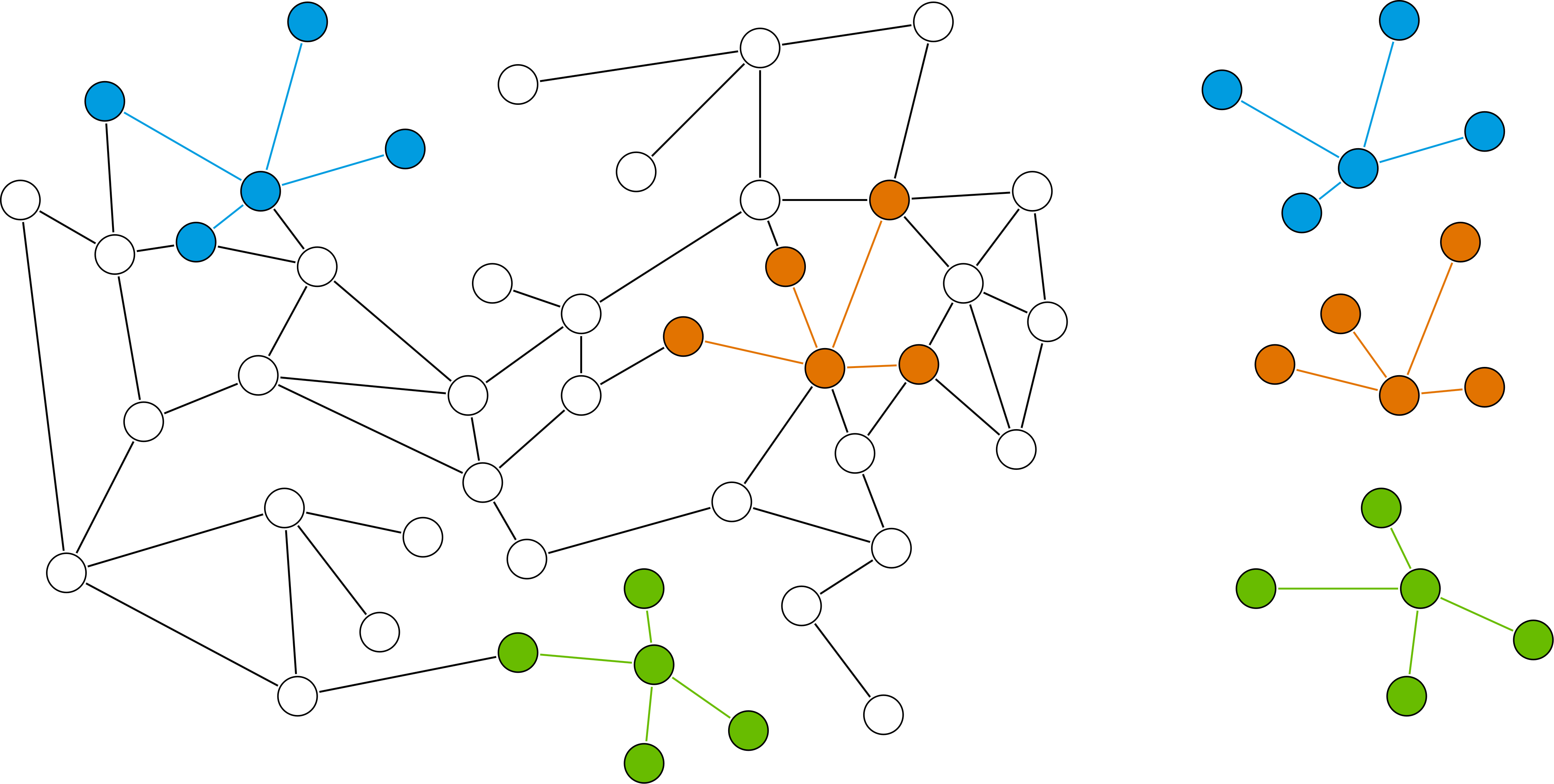 BIG DATA
BIG DATA
 BIG DATA
BIG DATA
 BIG DATA
BIG DATA
Graph database vendor Neo4j Inc. is teaming up with Snowflake Inc. to make a library of Neo4j’s graph analytics functions available in the Snowflake cloud.
The deal announced today allows users to access more than 65 graph algorithms using SQL without moving data out of the Snowflake environment.
The algorithms cover a variety of common graph uses, such as identifying anomalies, detecting fraud, optimizing transportation routes, consolidating data records and offering purchase recommendations. Graph databases are efficient at handling large quantities of data and representing complex relationships between items in a way that is difficult to do with relational tables.
Sudhir Hasbe, Neo4j’s chief product officer, said an example of the graph query would be, “Find user A and what review he wrote, what product he bought and what other products are linked to it.”
Hasbe said the partnership is a natural fit. “Both we and Snowflake focus on Fortune 2000 customers,” he said. “We feel there’s a significant overlap in the customer base.”
Users can also build knowledge graphs, which capture relationships between entities and are useful in building large language models. The arrangement doesn’t give users full graph database functionality, but that wasn’t the objective, Hasbe said.
“This will primarily be algorithms, not full database capabilities,” he said. Users who want full graph functionality “have to get the tools from us to move the data.”
Gartner Inc. has forecast that graph technologies will be used in 80% of data and analytics use cases, up from 10% in 2021.
A key feature of the partnership is the use of SQL to build knowledge graphs and run algorithms. “If we wanted to make it easy for people to adopt the technology, we had to go to where the customer is, and that meant we had to make sure that they could use the interface they already know,” Hasbe said. “We enable all of these algorithms using the SQL interface so users don’t have to run Python code or build Python notebooks. It’s super simple to learn and get going.”
Neo4j uses Cypher as its native query language, but it isn’t necessary to access the algorithms in Snowflake, he said. “If you define a graph, you need Cypher, but you call and run algorithms in SQL,” he said. Data isn’t stored in graph form in the Snowflake database but converted in an in-memory process to run the pre-defined algorithms.
The serverless process creates ephemeral graph data science environments using Snowflake SQL, requiring customers to pay only for resources utilized during the algorithms’ runtime. Payment can be in Snowflake credits.
Support our open free content by sharing and engaging with our content and community.
Where Technology Leaders Connect, Share Intelligence & Create Opportunities
SiliconANGLE Media is a recognized leader in digital media innovation serving innovative audiences and brands, bringing together cutting-edge technology, influential content, strategic insights and real-time audience engagement. As the parent company of SiliconANGLE, theCUBE Network, theCUBE Research, CUBE365, theCUBE AI and theCUBE SuperStudios — such as those established in Silicon Valley and the New York Stock Exchange (NYSE) — SiliconANGLE Media operates at the intersection of media, technology, and AI. .
Founded by tech visionaries John Furrier and Dave Vellante, SiliconANGLE Media has built a powerful ecosystem of industry-leading digital media brands, with a reach of 15+ million elite tech professionals. The company’s new, proprietary theCUBE AI Video cloud is breaking ground in audience interaction, leveraging theCUBEai.com neural network to help technology companies make data-driven decisions and stay at the forefront of industry conversations.